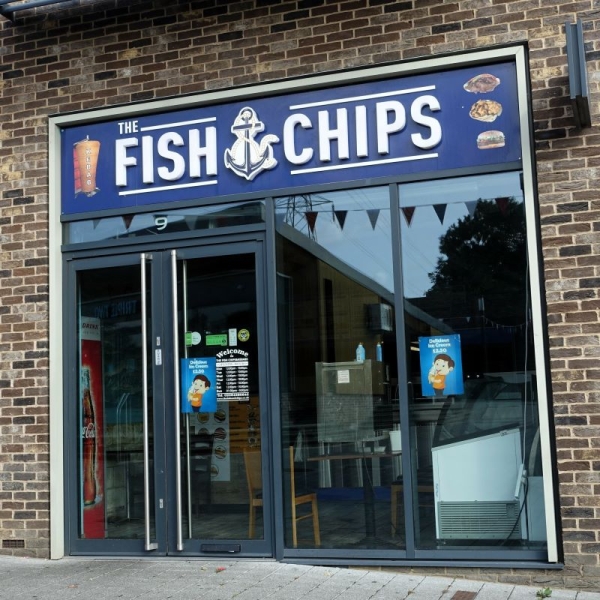13 Sep 2024 — UK NGO Obesity Health Alliance (OHA), alongside 88 other stakeholders, has shared an open letter with the nation’s newly elected prime minister Keir Starmer, asking him to act upon his proposed planning system reforms to support local councils in improving health and reducing health inequalities.
The letter references the UK government’s updated National Planning Policy Framework, which calls for tackling obesity and preventing new hot food takeaways from opening near schools. Nonetheless, a recent YouGov poll revealed that 50% of polled adults believe that childhood obesity rates in the country will remain unchanged under the current government, while almost a quarter (24%) expect them to increase.
“This issue stems from a lack of political will, not from a shortage of policies or evidence on how to address it,” Katharine Jenner, OHA director, tells Nutrition Insight. “We need a government committed to implementing proven solutions such as restricting hot food takeaways and advertising near schools and ensuring healthier food is both affordable and accessible, no matter where people live.”
The same poll finds that 70% of respondents would support a ban on advertising unhealthy food within 400 m of schools and playgrounds, and over half (52%) support a ban on any new hot food takeaways from opening in the same area.
“Failure to invest in essential preventive services will lead to a further decline in public health, exacerbate health inequalities and impose widespread economic and societal costs from managing the resulting poor health,” asserts Jenner.

Poll reveals 50% of polled adults believe that childhood obesity rates in the country will remain unchanged under the current government.Empowering local councils
OHA’s open letter to the Starmer government has received support from health charities, campaign groups, medical royal colleges, healthcare professionals, patients and citizens from across the country.
The letter sets out OHA’s position statement in six bullet points. Jenner provides us with additional details about these demands.
She highlights that OHA and its supporters are urging that: “Planned regulations to protect children from marketing of HFSS (high fat, sugar or salt) food and drink should be extended to outdoor areas. National planning guidance should be updated to explicitly state that a primary purpose of the planning system is to both promote good health and prevent ill-health, reduce health inequalities and address major public health priorities such as obesity rates.”
Jenner shared more details about the health implications of obesity, as well as the causes and public cost, in a previous interview with Nutrition Insight.
“The national government should use the ongoing reforms to planning in England to make it easier for local authorities to control their local food environments. This should include ensuring that the new ‘Design Codes’ incorporate healthy food environments, reviewing ‘Use Classes’ and ensuring that the Public Health Directors are statutory consultees for relevant planning applications.”
Jenner points out that, in real terms per capita, public health grants have been cut by 27% in the last few years, and she calls for these grants to be “immediately reversed.” This uplift, she explains, “is currently valued at £1.5 billion (US$1.9 billion) and indexed to inflation in future.”
“National government should develop a central framework to support the creation of a food partnership in every local area that wishes to establish them, and develop a national platform for sharing best practices and championing local excellence,” she adds.
“All local authorities in England must continue to oversee and conduct the National Child Measurement Programme and the national government must ensure that all statutory responsibilities in this regard are met in full.”
Fighting “commercial influence”
Another key recommendation listed in the letter is the need for the national government to take “a stronger stance against engagement with companies that engage in unethical behavior that undermines public health.”
Jenner provides insights into the influences such companies face from councils and how they might hinder them from promoting public health. “Local authorities must be protected against industry lobbying and commercial influences, with a particular focus on addressing legal challenges from companies seeking to undermine public health measures. This should include direct support from a national government department in contesting legal challenges to public health plans brought by large corporations.”

OHA calls for the restriction of hot food takeaways and advertising near schools.“A second major barrier to action is the threat of legal challenges to any policies introduced by local authorities, often initiated by larger or multinational companies operating hot food takeaways and fast-food outlets. These companies leverage their substantial financial and legal resources to oppose local authorities, either by making representations to the planning inspectorate when plans to limit hot food takeaways near schools are proposed, or by appealing when permission for a new outlet is denied.”
She explains that large companies can replicate these challenges nationwide, while local authorities often lack the financial means to contest them effectively.
“Another obstacle to action is the lack of consistent support for interventions among planning officers and local government officials. While interviews with planning and public health professionals in England revealed broad support for tackling obesity, they also highlighted that many planners lack a sufficient understanding of its causes — particularly the impact of the food environment.”
This knowledge gap contributes to a reduced willingness to use planning policies to address local obesity levels, Jenner argues.
“Additional barriers include ideological resistance to employing government policies in this way, conflicting priorities between local health and economic goals and a lack of awareness of how planning policies can influence health outcomes.”
By Milana Nikolova

